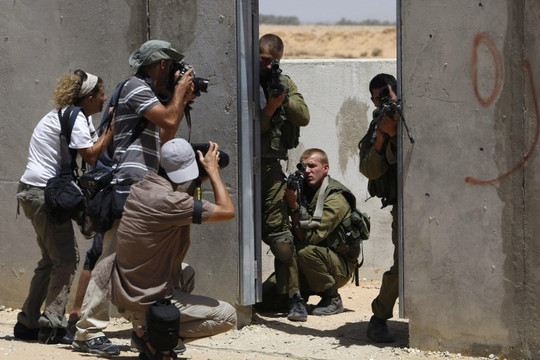The International Federation of Journalists (IFJ) has condemned an Israeli draft law that seeks to criminalise the recording, photographing and filming of Israeli soldiers on duty.
The bill, entitled the “Prohibition against photographing and documenting [Israeli army] soldiers”, comes as a response to a “worrying phenomenon of documentation of Israeli soldiers” for many years, says Robert Ilatov, chairman of Yisrael Beiteinu party who proposed the draft to the Knesset, Israel’s Parliament, on 24 May.
Backed by the Defence Minister Avigdor Lieberman, the draft legislation states that “Anyone who filmed, photographed, and/or recorded soldiers in the course of their duties, with the intention of undermining the spirit of IDF soldiers and residents of Israel, shall be liable to five years imprisonment”. In addition, “Anyone intending to harm state security will be sentenced to 10 years’ imprisonment.”
The IFJ has also backed calls by its affiliate the Palestinian Journalist Syndicate (PJS) for the draft law to be scrapped.
In a statement, the PJS strongly condemned the Israeli bill : “The PJS stressed that the introduction of this law, which coincides with Palestine filing a complaint at the International Criminal Court against war crimes committed by the occupation, and while the PJS continues its efforts to complete the legal files to file complaints at European and international criminal courts for crimes against journalists, emphasizes that the core of the law is to mislead justice and provide a formal cover for further crimes.”
The IFJ called on Israel’s Parliament to oppose the bill, which could seriously harm media freedom.
“The Israeli legislative proposal must by no means become a law. It constitutes a serious breach of the freedom of the press, as it precisely criminalises the work of journalists,” said IFJ General Secretary, Anthony Bellanger. “Censorship should not be enshrined in law, and it is media workers’ duty to inform the public.”

